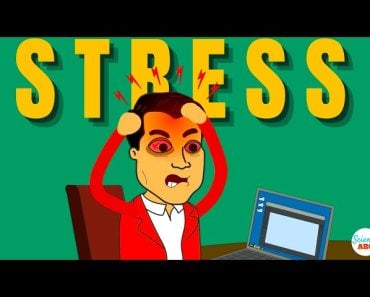Table of Contents (click to expand)
The reason we wake up at the same time every morning is because of our body’s Circadian rhythms. These rhythms form a basic “schedule” for our bodies, causing us to wake up at roughly the same time each day, provided that you live a relatively routine life.
Our body’s Circadian rhythms form a basic “schedule” for our bodies, causing us to wake up at roughly the same time each day, provided that you live a relatively routine life.
While being y0ung, free and spontaneous has a certain allure to it, most people eventually find themselves in a situation where they have to set an alarm clock to ensure their life doesn’t get thrown into chaos. Whether it is taking care of your newborn baby, making it to your 9am lecture, or getting on the road to beat the commuter traffic, waking up and starting the day is pretty important.
However, have you ever experienced the strange phenomenon of waking up only moments before your alarm clock? Or even if you aren’t an alarm clock owner, do you notice that your body tends to naturally wake up at the same time? Why – and more importantly, how – does that happen?
Recommended Video for you:
The Cycle Of Our Days
You may not like being classified as such, but the fact remains… human beings are creatures of habit. Based on the fact that we are diurnal animals – primarily active during the daytime – we know that something in our genetic makeup and evolutionary history has made our bodies “aware” of the passage of time. Based on our energy expenditures, nutrient intake, hormonal fluctuations and habits, we do exist on something of a schedule.
In fact, we exist within a number of rhythms and patterns that we collectively call our Circadian rhythm. You also might know this by different names, such as internal clock, biological clock, Circadian oscillator, etc. However, this Circadian rhythm is reactive to certain external cues, the primary one being daylight. This Circadian clock is located in the hypothalamus, more specifically, in an important bundle of nerves called the suprachiasmatic nuclei (SCN).

Although the SCN only possesses about 20-25,000 neurons (nothing in comparison to the rest of the brain), it has key connections to other parts of the brain that regulate our day and night schedule. This tiny bundle of nerves is the ticking clock that guides our sleeping and wakefulness. Not only that, it also guides our heart rate, body temperature and blood pressure, among other key aspects that can affect how tired or active we happen to be.
Over evolutionary history, the suprachiasmatic nuclei has become very good at recalibrating our daily cycle based on the 24 hours of each day, and while some people have a cycle that is slightly longer, and others a cycle that is slightly shorter, we are basically preprogrammed to operate within a 24-hour day. Over the course of this cycle, we see changes in melatonin secretion (which can help us relax and fall asleep), bowel movement, blood pressure, body temperature, coordination, reaction time, testosterone production and stress hormone levels.
This tightly packed bundle of nerves is the operating center for our alertness, and while it is extremely powerful and can affect our lives in countless ways, we do need to help it stay on track, particularly if we want to wake up on time.
Also Read: Why Do Teenagers Always Sleep Late?
Why Do I Wake Up At The Same Time Every Day?
While the SCN takes care of the many hormonal and neuronal aspects of our Circadian rhythm, our choices and behavior have a great deal to do with when our body begins to “wake itself up”. The body prefers to get 7-8 hours of sleep, which is anywhere from 3-5 REM cycles of sleep, depending on how many times you are awoken throughout the night. The body also prefers a routine, so if you begin going to bed every night at 10 pm, and setting your alarm for 6 am, the SCN can definitely get on board with that.
Within a matter of days or weeks, it will adjust your melatonin levels to begin increasing around 9 pm, making you feel drowsy and ready for bed. Then, somewhere around 5 am, following your deepest period of sleep, it will begin boosting cortisol levels in the body, causing you to sleep shallower and lighter until eventually, you naturally awaken, right on time.
You see, the body spends a lot of time and energy perfecting this system, and a gradual wake-up makes for a smoother adjustment into the day and a more rested feeling. Although many people NEED an alarm clock to pull themselves out of bed, your Circadian rhythm (and your nerves) hate it! That sort of jolting shock is disorienting and floods the body with stress hormones, essentially undoing the smooth transitional work your system had been doing while sleeping.
Over time, if you remain on the same schedule, your body’s clock is so precise that it will occasionally wake up up a few minutes or even seconds before your alarm is set to go off. No, you’re not psychic, but your mind is an incredibly powerful thing. Research has even shown that if you fall asleep with the idea of waking up at a certain time, or earlier than normal, and measure out the hours, your body will naturally adjust its hormone levels to help you wake up earlier by releasing stress hormones hours earlier than it normally would have!
Also Read: Why Do We Sometimes Feel Tired All Day, But Wired At Night?
Breaking The Routine
Clearly, Circadian rhythms can have a major effect on our lives, but if you don’t live a lifestyle that allows for this sort of routine (e.g., going to bed at the same time and waking up at the same time), then your body will have to constantly guess what you’re going to do next, and you’ll end up being a slave to your alarm clock.
Regularity and routine is the key if you want to master your Circadian rhythms and get to the point where you are always waking up around the same time. Have a nighttime schedule, avoid electronic consumption in the hours before bed, and try to start your day around the same time every morning. Pretty soon, you’ll be living the dream – or at least waking up without the blaring of your alarm clock disturbing your peaceful slumber!












